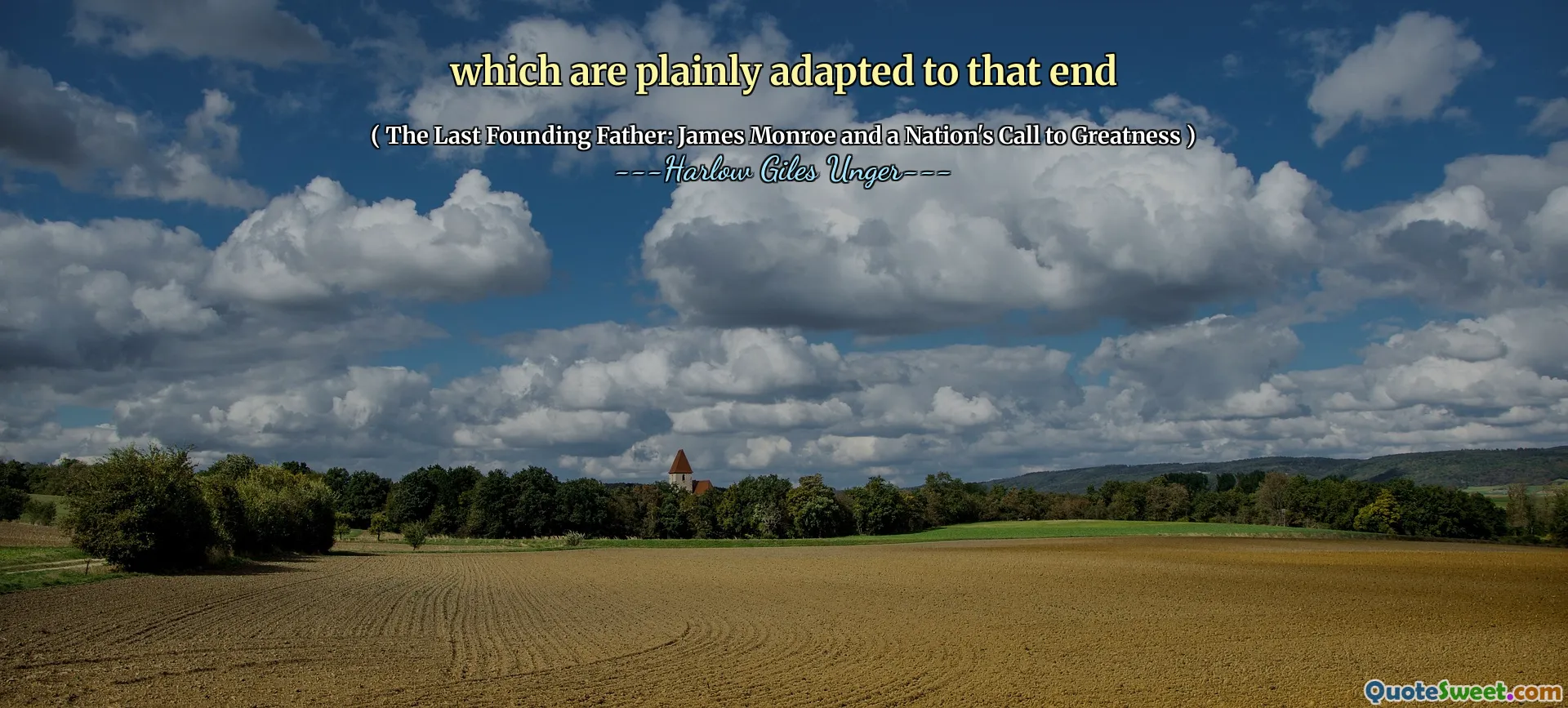
which are plainly adapted to that end
The book "The Last Founding Father: James Monroe and a Nation's Call to Greatness" by Harlow Giles Unger delves into the life and contributions of James Monroe, one of the United States' Founding Fathers. Unger portrays Monroe as a significant yet often overlooked figure in American history, highlighting his role in shaping the nation during its formative years. The narrative emphasizes Monroe's dedication to the principles of democracy and his efforts to expand the country’s boundaries and influence. Unger further illustrates how Monroe's presidency marked a pivotal period in American history, focusing on his efforts to establish a sense of national identity and unity. The author argues that Monroe's vision and policies not only addressed the challenges of his time but also laid the groundwork for America's future greatness. Overall, the book presents an in-depth analysis of Monroe's legacy and the enduring impact of his leadership on the nation.
The book "The Last Founding Father: James Monroe and a Nation's Call to Greatness" by Harlow Giles Unger delves into the life and contributions of James Monroe, one of the United States' Founding Fathers.
Unger further illustrates how Monroe's presidency marked a pivotal period in American history, focusing on his efforts to establish a sense of national identity and unity.











